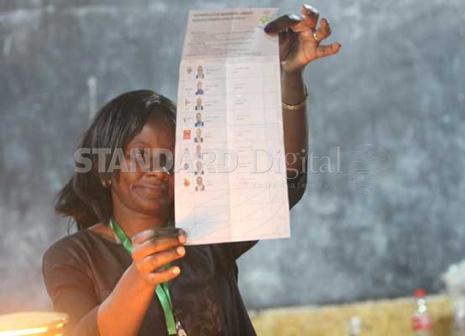×
The Standard e-Paper
Fearless, Trusted News

The number of spoilt and disputed votes in this year's polls could be highest ever in Kenya's election history.
In fact, if 'Rejected Ballot' had been a candidate, s/he would have come third based on the provisional results that put President Uhuru Kenyatta ahead of NASA's Raila Odinga.